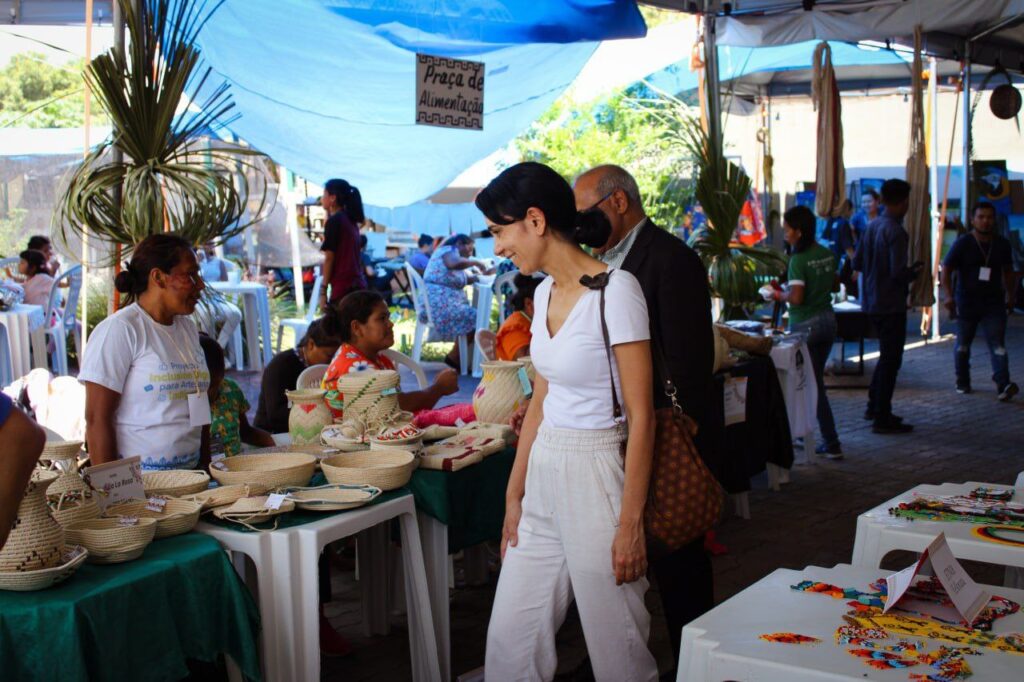Through the 2022 Annual Report, you will be able to access information and data on the activities carried out by the Means of Life and Durable Solutions Sector, by the Roraima Humanitarian Mission and the Indigenous Cultural and Training Center (CCFI), under the management of the Fraternity – International Humanitarian Missions (FIHM) during the year 2022.
With a multiethnic and multicultural character, the CCFI is a space that provides coexistence and exchange between a great diversity of indigenous ethnic groups and bases its action strategies on promoting the autonomy of the migrant and refugee indigenous population connected with cultural strengthening and environmental conservation. It also aims to provide integration between ethnic groups from Venezuela (Warao, Eñepá, Taurepang, Wayu, Curripaco, Kari’ña and Kamarakoto), Guyana (Akawaio and Wapixana) and Brazil (Macuxi, Wai Wai, Wapixana, Sateré Maué, Yanomami and Ye ‘kwana).


As stated in the Report, the lessons learned and the experience developed in 2021 allowed the integration of demands that resulted in the creation of a Continuing Training Program for Development (PFCD), which involves governmental institutions, non-governmental organizations and humanitarian agencies, “with paths to be taken according to the choices of each participant, covering diversified capabilities and providing a wide range of possibilities.”
The PFCD presents a pedagogical route that includes dream visualization, job choice, the incentive to collective work and training in Portuguese, IT, financial education and several professional areas. All activities are carried out free of charge, at no cost to the indigenous people, in addition to offering food, transportation, materials, availability of equipment and adequate infrastructure.
In 2022, courses were offered to 672 indigenous people. Of these, 63% (421) were young people between 18 and 35 years old (Table 2). Most were women (Table 3). More than 80% of assisted people live inside shelters and 18% outside.



The situation of permanence and integration in Brazil becomes a reality that requires attitudes of resilience on the part of indigenous migrants and refugees and of solidarity on the part of the host communities, to build a future perspective that will enable them “to create subsistence conditions, with the purpose of adapting to the current context in an integrated way and, based on the diaspora in which they live, also being able to help their families in Venezuela.”
The union of efforts through partnerships with other institutions, added to the technical knowledge of humanitarian workers applied in actions developed by the Indigenous Cultural and Training Center (CCFI), make it possible to create new paths for these people to fulfill their dreams and move forward with their lives.







